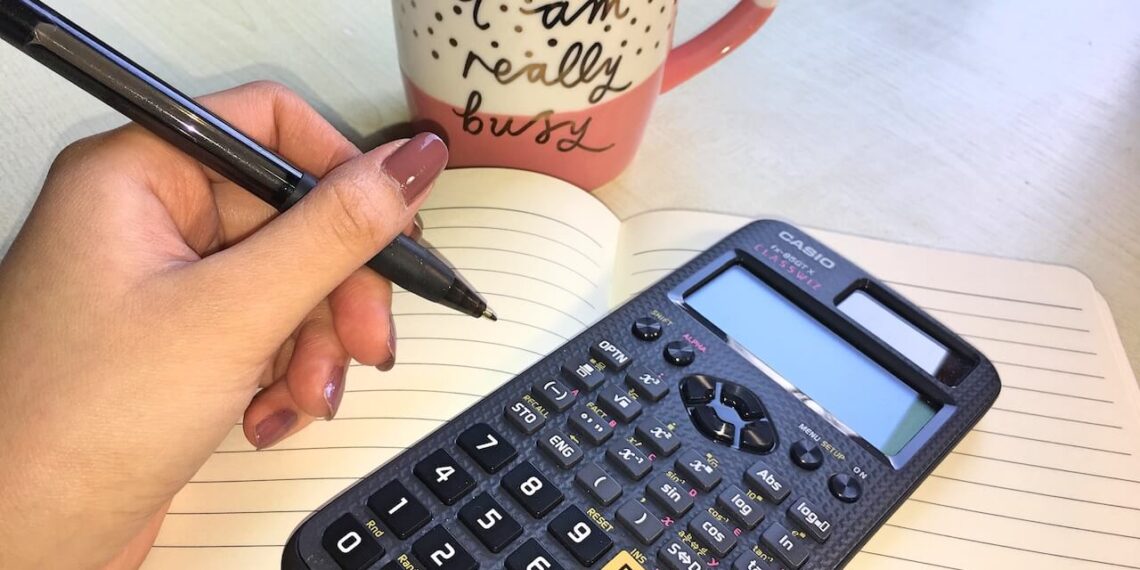Table of Contents
How To Budget When You’re A Student
University is a time where students begin picking up more responsibilities. And, one of the biggest responsibilities is learning to budget for yourself. It’s important to learn how to budget properly because this will ensure that you aren’t struggling for money and having to starve yourself.
In fact, a National Student Money Survey found that 71% of students wished that they knew better how to budget before university. So, if you aren’t sure of how to budget, don’t worry! Many of your university mates probably don’t either. But that’s not a reason to not learn. So, in this article, we will be talking about how you should budget as a university student.
Don’t know what course to choose? Consider taking a safety coordinator course.
Why Should You Learn To Budget?
Before university, you probably didn’t need to manage your finances as carefully. You were probably living at home and most of your needs were provided by your parents. You were probably given an allowance and that was mainly for use when you’re out of the house. But everything in your house – your food, utilities, insurance, etc, they were all covered by your parents. University is different though, you’re most likely managing all of that now.
With so many more expenses to deal with, you might not know how to properly allocate the funds you have. This means that you might end up spending too much money on food and not have enough money for rent. Or, if you have too much fun going out with friends, you might end up with not enough for food and rent. So simply put, learning to budget is important!
And, let’s not forget your summer plans. You’ll probably want to take a trip with friends and you can’t do that without saving any money!
How To Calculate Your Budget
Well, simply put, a budget requires you to know all possible sources of income and all possible expenses. You’ll always want the two to be balanced or for there to be more income than the expenses.


So firstly, let’s talk about income, where are you getting money from? Write down your sources of income and calculate how much money that gives you weekly or monthly. Some of the most common streams of income for students are:
- Maintenance Loan funds
- Money from scholarships, grants, or bursaries
- Allowance from your parents
- Part-time jobs
- Savings
If you have funds coming in from your maintenance loan, remember to budget it well. Funds are usually dispersed thrice an academic year. It’s easy to want to splurge when they’re released each time. But, always remember that you’ll have to save most of it for later months.
Next, let’s talk about your expenses – what are you spending your money on? Think about it carefully and write them all down. If you need to, you can even use your bank statements to derive estimates of all your spendings. Mostly, you can expect your budget to be split into two parts: essential expenses and non-essential.
Under essential expenses, you have items such as:
- Rent
- Groceries
- Bills (i.e: insurance, gas and electricity, water, broadband, and mobile phone)
- Transport (i.e.: bus and or train pass, car fuel, and car insurance)
- School materials
And then under non-essential expenses, you have:
- Nights out (i.e: alcohol, club entry fees, and taxis)
- Eating out
- Hobbies
- Clothes
- Gym membership
- Beauty
- Subscription services (e.g: Netflix, Disney Plus, Amazon Prime)
- Traveling
- Gifts
- Charity
If you have a tight budget, you’d want to forego more of the non-essential expenses.
And finally, plan out a budget for yourself. Depending on you, you might want to budget your finances on a weekly or monthly basis. But essentially, look at how much money you can afford to spend each week (this is based on your income). Then, minus the cost of all your essential expenses. How much money do you have left? Or, were you unable to fully cover your essentials? If you weren’t able to cover your essentials, you’ll have to think about finding more income or cutting down more on your essentials. For example, you might choose to shop at more budget grocery stores.
If you have any money left, this is where you can use it on your non-essentials. However, you should still try to save up some of the remainders. These savings can be used for a rainy day or for a future trip or big purchase.
As you go about your week, track your spending. It’s good to do an evaluation of how well your budgeting is working every month. If there are issues, you can always problem solve and make your budget work better for you.
What Tools Should You Use?
Finally, let’s talk about budgeting tools. In the technologically advanced world of today, what are some apps that you can use for budgeting? Of course, if you prefer being old school, you can always just use some paper. Otherwise, let’s talk about budgeting tools.
1. Spreadsheets
One of the easiest ways to track your budgeting is with a spreadsheet. You can use excel or google sheets to do this. Spreadsheets are best because you can plug formulas in and they will automatically do the calculation for you!. You can also split the tabs into months to track your past expenses. Additionally, you can use spreadsheets to plan for your saving goals too.
2. Phone Apps
If you aren’t fond of spreadsheets, there are a ton of mobile phone applications that you can use for budgeting too. For some banks, their mobile phone application will have a budgeting tool too! If you use your debit or credit card to pay for anything, the bank is automatically able to tag it as a certain expense. This is far more convenient for some.
Otherwise, you can always use apps specifically made for budgeting, such as Monzo. Budgeting apps are great because they can be set up to send you notifications. For example, if you are about to go over your budget, the application could send a notification to alert you. This will ensure that you can make changes immediately.
Conclusion
Budgeting is an important life skill and learning to do it properly during university is a good idea. This ensures that by the time you start working, you’ll have it down pat. Through this guide, we hope that you have a good understanding of how you can begin budgeting your finances too.

